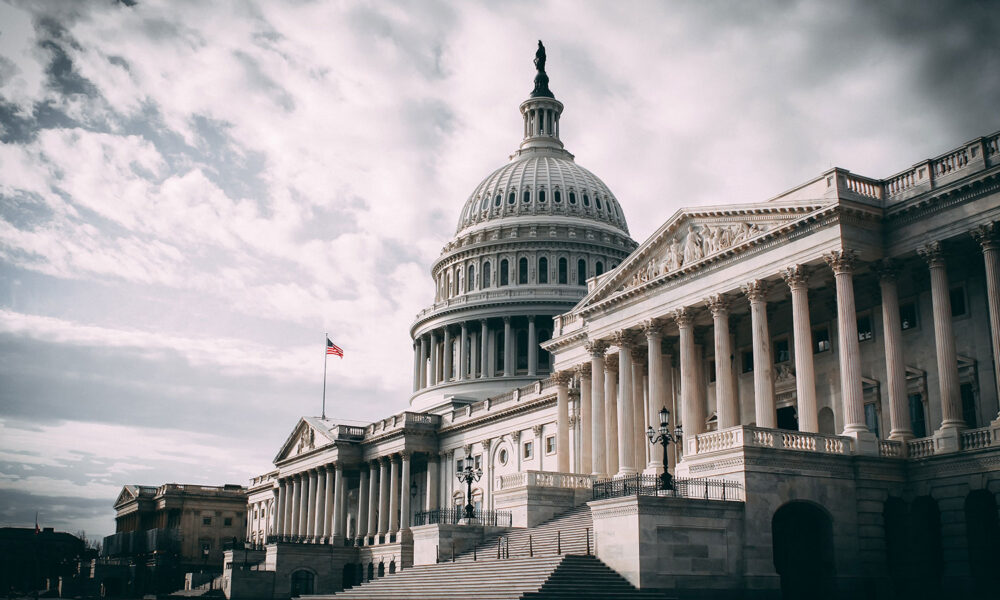The first few weeks of the Trump administration have seen a flurry of far-reaching executive orders and other actions that threaten, among other things, the ability of federal agencies to pursue science and share that science with the public. These dangerous and in some circumstances, potentially unconstitutional actions demand a response from Congress. One such response that could protect science was introduced in Congress this week: the Scientific Integrity Act.
What is it?
Scientific integrity means that science is transparent, independent, reliable, and free from political interference. It means scientists can share their work at conferences, meetings, in communities and with the public at large. It also means that the scientific evidence used to build policies reflects the real world and can be used for the public interest. The Biden administration’s White House Office of Science, Technology, and Policy defined it in this way:
“Scientific integrity is the adherence to professional practices, ethical behavior, and the principles of honesty and objectivity when conducting, managing, using the results of, and communicating about science and scientific activities. Inclusivity, transparency, and protection from inappropriate influence are hallmarks of scientific integrity.”
What would the Scientific Integrity Act do?
The Scientific Integrity Act (SI Act) is a bipartisan bill re-introduced on February 6th in the US House of Representatives. If enacted, the SI Act would provide guardrails around science and scientists, requiring federal agencies that fund, conduct or oversee scientific research to establish and maintain clear and enforceable scientific integrity policies. This bill would help ensure that policymaking is based on the best available science, and would keep scientific research, done on behalf of the public, free from political interference. The threat of political interference is evident: in the first week of the new administration, travel, meetings, new hires, and results dissemination were all halted at the Department of Health and Human Services. Moreover, the rescission of old executive orders and the addition of new ones have been justified by misrepresentations and falsehoods about climate change and environmental justice programs, which are premised on robust scientific evidence.
The SI Act would require each federal agency to develop a scientific integrity policy and train its staff on scientific integrity. These SI policies would include language prohibiting scientific or research misconduct; preventing intimidation or attempted coercion to alter or censor scientific or technical findings; and allowing public dissemination of scientific and technical findings. It would ensure that federal scientists can publish findings, sit on scientific advisory or governing boards, join or lead scientific and other professional organizations, and contribute to peer review as reviewers or editors. It would ensure that scientific conclusions are not made based on political considerations but based on the best available science. It would also require that federal agencies have scientific integrity officers who have the expertise to implement these policies.
Other requirements include protections for scientists and experts against politically-motivated firings, that agencies develop appropriate rules and procedures to ensure the integrity of the scientific process, and a requirement that scientists adhere to the highest ethical and professional standards of research and dissemination. The whole purpose of the SI Act is to ensure that safeguards are in place so that science that is considered in policy decisions is the result of well-established scientific processes, not political mandates from above.
Scientific integrity policies in the previous administration
After many years of work, the Biden administration’s White House Office of Science, Technology, and Policy developed and released a Framework on Scientific Integrity outlining what scientific integrity is and providing guidance around its implementation. The Biden administration implemented additional actions in the trajectory to provide guardrails around federal government science, including a model scientific integrity policy and an Executive Order requiring federal agencies to develop scientific integrity policies. As a result, many federal agencies developed scientific integrity policies and assigned scientific integrity officers, though progress was slow at many agencies. However, Executive Orders, guidance, and policies from one White House are easily overturned with an incoming administration, as we’ve seen from the Trump administration’s chaotic opening days. That’s why this bipartisan law, if enacted, is so important. It would become a longer-term protection of reliable and transparent science free from politicization, coercion, and manipulation.
Scientific integrity policies are under attack
Over 300 attacks on science have taken place across the last four presidential administrations. During the Bush Administration there were 98 attacks on science, Obama’s Administration had 19, in the first Trump Administration there were 207, and during the Biden administration there were 2 attacks. The SI Act would put guardrails around federal science and lessen the potential for these attacks, especially important in the current administration.
One wouldn’t think these safeguards on the scientific process would be contentious, but in fact this bipartisan effort is under attack by President Trump’s allies. The chairman of the House Oversight Committee, Rep. James Comer, initiated a formal investigation of federal agency SI policies and scientific work. This effort is itself an outright attack on science, meant to intimidate federal scientists, and over 50,000 scientists have publicly supported scientific integrity policies in an open petition to Congress.
Scientific integrity policies support public health, equity, and justice
UCS has been tracking attacks on science, and those from the last Trump administration ran the gamut from undermining studies on hazardous pesticides, to refusing to adopt dietary guidelines, to interfering with the Center for Disease Control and Prevention’s (CDC) COVID-19 public outreach. These manipulations and coercion of scientific findings and related actions didn’t just violate the principles of scientific integrity: they hurt people.
We expect to see even more attacks on science and scientists ahead.
What you can do
If you, like me, are worried about what the Trump administration could do to science and the safeguards and policies that depend on science, it’s time to get mobilized. Urge Congress to pass the bipartisan Scientific Integrity Act using this fast action link.
And contact your members of the US House of Representatives and US Senate to let them know you support trustworthy, independent federal science and won’t stand for efforts to attack it.

